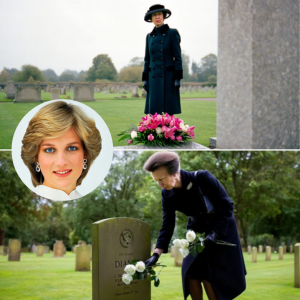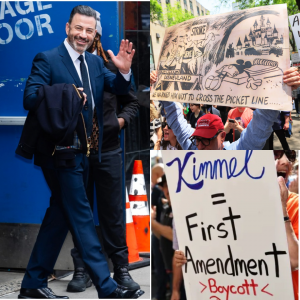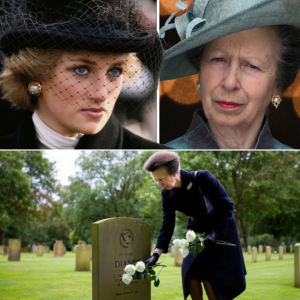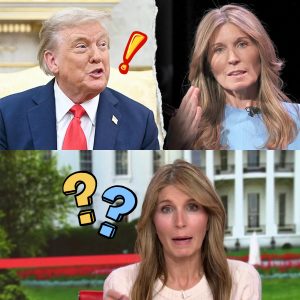John Durham, the former special counsel who spent nearly four years examining the origins of the FBI investigation into President Donald Trump’s 2016 presidential campaign and its alleged ties to Russia, told federal prosecutors investigating James Comey that he was unable to uncover evidence that would support false statements or obstruction charges against the former FBI director, sources familiar with the matter told ABC News.
Federal prosecutors in Virginia met remotely with Durham in August to understand the findings of his investigation, according to sources familiar with the meeting, and his conclusions raise the prospect that Durham — who was once elevated by Trump and other Republicans believing he would prosecute high-level officials involved with the investigation of the president’s 2016 campaign — could now become a key figure aiding Comey’s defense.
The prosecutors also met with a team of lawyers at the U.S. Attorney’s Office in Washington, D.C., who had investigated Comey for years — including calling him to testify before a grand jury in 2021 — but were unable to identify any chargeable offenses committed by Comey, sources familiar with the meeting said.
After conducting their own two-month investigation, prosecutors in Virginia reached the same conclusion as both Durham and the D.C. prosecutors: They’d be unable to prove Comey made false statements to Congress to obstruct their investigation. Presenting their findings in a lengthy declination memo, the prosecutors explicitly mentioned the two other investigations to bolster their recommendation that probable cause does not exist to charge Comey, according to sources familiar with the contents of the memo.
Lindsey Halligan — a former insurance lawyer hand-picked by Trump to serve as U.S. attorney for the Eastern District of Virginia — promptly rejected that recommendation and sought a three-count indictment against Comey. Last month, a grand jury voted to indict Comey on two charges of making a false statement to Congress and obstruction, while rejecting an additional false statements count sought by Halligan. Prior to appointing Halligan, Trump said she would “get things moving,” signaling that she would bring cases against Comey and others.
Durham did not respond to a message seeking comment from ABC News. A Justice Department spokesperson also did not respond to a request for comment.
The politically fraught case — which runs counter to the judgment of at least two prosecutors appointed by Trump himself — comes as the president pushes for more charges against some of his political foes, seeking retribution for the multiple criminal cases he faced following his departure from office.
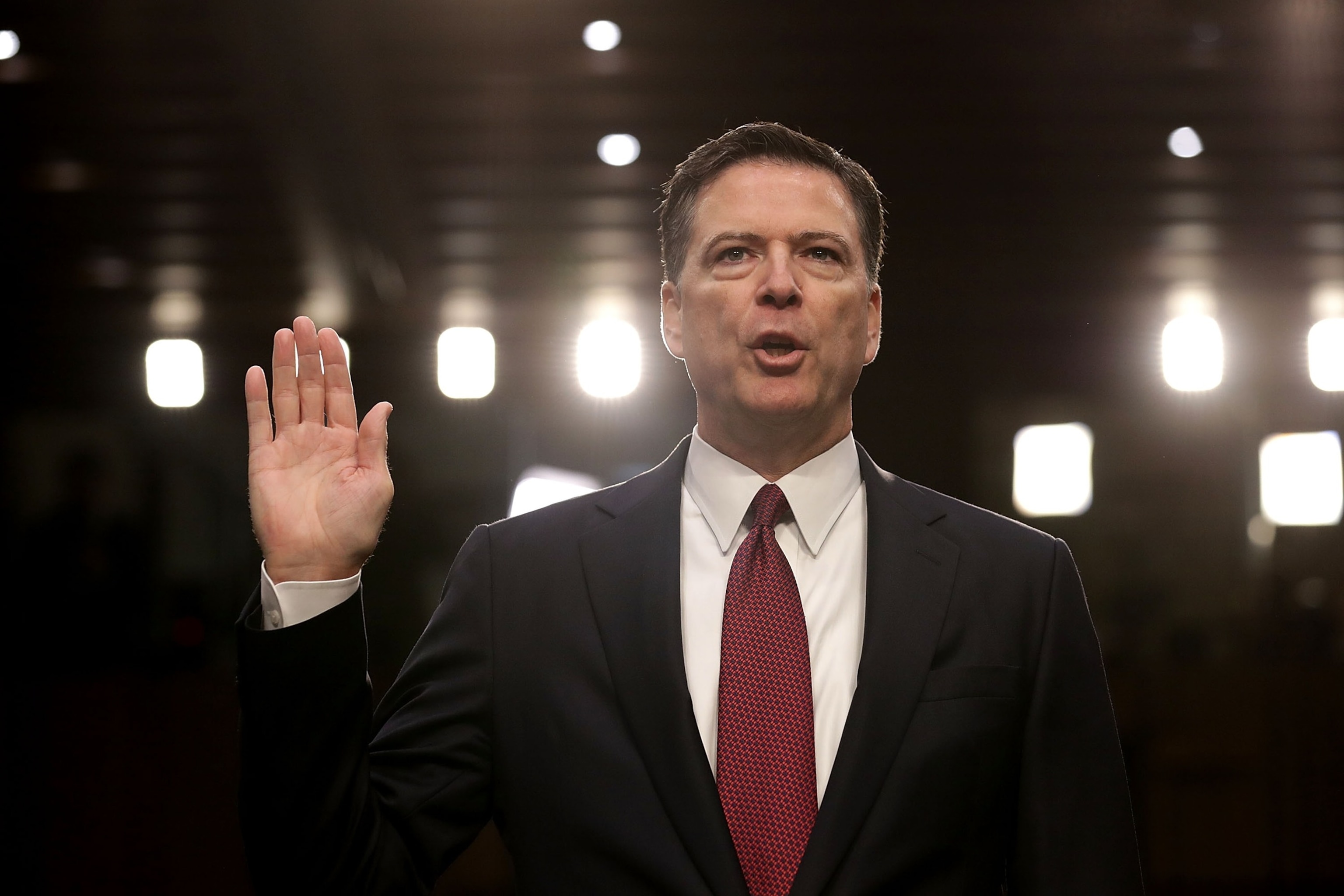
Former FBI Director James Comey is sworn in while testifying before the Senate Intelligence Committee in the Hart Senate Office Building on Capitol Hill, June 8, 2017.
Chip Somodevilla/Getty Images
“There’ll be others. Look, that’s my opinion — they weaponized the Justice Department like nobody in history. What they’ve done is terrible,” Trump told reporters one day after Comey was indicted. “And so, I would — I hope — frankly, I hope there are others, because you can’t let this happen to a country.”
However, the circumstances surrounding the prosecution — including that at least three other teams of prosecutors declined to bring the charges — could not only bolster the argument that Comey was targeted but also highlight the weaknesses that experienced prosecutors had already identified in the case, sources said. Senior leadership at the Department of Justice had repeatedly voiced skepticism about the case, and no career prosecutor was willing to present the case to the grand jury on Halligan’s behalf, sources added.
The case pursued initially by Halligan, according to sources, centers on two elements of Comey’s testimony before the Senate Judiciary Committee in 2020 — that he allegedly lied about approving leaks to the media, and that he was unaware of an unverified intelligence report that then-presidential candidate Hillary Clinton tried to create a “scandal” by linking Trump’s campaign to Russia.
Durham’s team extensively investigated whether Comey’s testimony that he was unaware of the intelligence report and that the allegation “doesn’t ring any bells” was intentionally misleading. According to sources, Durham did not believe he could support false statements charges for Comey’s purported lack of memory, and that evidence never fully established that Comey had seen the intelligence report.
Speaking with federal prosecutors over an hour-long video conference in late August, Durham reiterated his team’s finding that Comey’s testimony does not support false statements charges, sources familiar with Durham’s interview said. The 2025 investigation of Comey followed the same evidence and matched the conclusion reached by Durham, whose vast investigation spanned four years and two presidential administrations.
The grand jury, which last month heard evidence against Comey, appeared to reach the same conclusion that Comey did not lie to Congress about the intelligence report, returning a no bill for the first false statements count sought by Halligan.
The grand jury did return an indictment on two counts sought by Halligan about Comey allegedly lying about approving a leak of information to the media regarding the Russia investigation. According to sources, the first count of the indictment centers on Comey’s alleged role using his friend and former lawyer Daniel Richman to provide reporters with information about an FBI probe of Clinton.
Over the course of four years, prosecutors with the United States Attorney’s Office in D.C. had also investigated Comey for allegedly leaking information, including using Richman as a conduit to the press. By 2021, the prosecutors called Comey to testify before a grand jury about the allegations; however, they opted to decline the case because they believed there was no conclusive evidence that Comey had ever used Richman as an anonymous source or leaked classified information.
Those D.C. prosecutors provided their evidence to the prosecutors in Virginia and met to discuss their decision-making, according to sources. The team that investigated Comey this summer ultimately reached the same conclusion, telling Halligan that pursuing an indictment without clear probable cause would be unethical. She did it anyway.
“The balance of power is a bedrock principle of our democracy, and it relies upon accountability and a forthright presentation of facts from executive leadership to congressional oversight,” Halligan said in a press release following the indictment.
During the course of his probe, Durham only brought three criminal cases — none of which involved senior ranks of the FBI or DOJ involved in investigating Trump’s 2016 campaign. Two of the cases that went to trial resulted in acquittals, including one that took place in the Eastern District of Virginia.
In his 306-page final report detailing the findings of his investigation, Durham used a portion of the document to outline the high bar required to initiate federal prosecutions in explaining why his office may have opted not to seek charges against specific individuals, even when it determined their actions were improper.
“If this report and the outcome of the Special Counsel’s investigation leave some with the impression that injustices or misconduct have gone unaddressed, it is not because the Office concluded that no such injustices or misconduct occurred,” Durham said in his report. “It is, rather, because not every injustice or transgression amounts to a criminal offense, and criminal prosecutors are tasked exclusively with investigating and prosecuting violations of U.S. criminal laws.”
